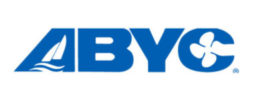Freedom from hassle
Let’s face it: boating isn’t easy or cheap.
Boat prices keep rising, as do the costs of fuel, slips, winter storage and, of course, repairs. Add to that the time and energy required for boat cleaning and maintenance, keeping up with changing regulations, weather, tides … the list goes on and on.
In the end, boat ownership is for those who enjoy boating so much they’re willing and able to endure the hassles. It leaves behind those who would enjoy being out on the water if only it didn’t cost so much or take so much time to prepare for, to clean-up after, etc. Many of them are former boat owners.
The good news is that a growing number of these folks have access to groups like the Freedom Boat Club and SailTime, both of which are rapidly expanding. These groups market themselves as offering a hassle-free boating experience for a fixed cost, which is less expensive than boat ownership, when you add it all up.
For an annual fee, members have the ability to make a specific number of online reservations to use any of the group’s boats. On their reserved day, they simply show up at the dock, where the boat, clean and ready, waits for them. When they’re done, they pull up to the dock and hand over the keys.
Growing fast
Freedom Boat Club has about 2,400 members and 35 locations, seven of which opened last year, and the owners expect continued growth.
It was founded in 1989 with one location in Sarasota, Fla. A second location was opened in the 90s, but it was under new ownership that it really began expanding. In fact, it grew too fast for those owners, and they decided to sell to Aspen Investment Partners, the current owners, in 2003.
Though the company doesn’t advertise, Managing Partner Ray Kubik says he thinks they can add five to 10 new franchise locations per year. The clubs are currently concentrated in the southeast and Mid-Atlantic. Boating communities along the West Coast and inland lakes represent great opportunities, he adds.
Seventy-five percent of Freedom’s members are former boat owners, ranging from retirees and families to sportsmen and urbanites, according to Kubik.
“They know the frustration and anxiety built up in trying to get the boat ready, trailering it, putting it in the water, putting the boat away,” he explains. “[Our club] provides less stress and more quality time together.”
SailTime, launched in 2001, has 30 locations in North America and five in Europe. The owners say they eventually plan to open at least one base in every major boating location throughout the world. Though they originally offered sailboats exclusively, SailTime expanded into powerboats last year.
Good or bad for boat sales?
It would appear that a program giving boaters an alternative to buying a boat would be bad for boat sales. But that’s not necessarily the case, according to Thom Dammrich, president of the National Marine Manufacturers Association.
“I think that bringing former boaters back into boating is a good thing,” he says. “It’s probably better for boat sales than worse.”
Dammrich also points out that it may help an industry challenged by boating access. “If you can provide seven boating families access to one boat in one slip vs. one family in one boat, that’s going to get more people involved,” he says.
In addition, it has the potential to serve as a profit center for marina operators. Freedom Boat Club’s Kubik says that while there aren’t any marina operators among its current franchisees, such an arrangement would make sense. Not only does the franchise offer “an excellent return on investment,” it’s an opportunity to increase revenue from gas, service, a ship’s store and a restaurant business. Many boats in marina slips get used less than 12 times a year. However, under the programs offered by Freedom Boat Club and SailTime, each boat has from eight to 12 users, which drives much more traffic to the marina than a typical slip renter.
Freedom Boat Club requires the following of a franchisee: 1) a reasonably large body of water with a corresponding large population of boating enthusiasts; 2) a marina with sufficient slips; (3-4 to start) and the availability of more as membership growth requires.
As boating access declines and the cost of owning a boat climbs, these clubs may be one more way to help the industry “grow boating.”




